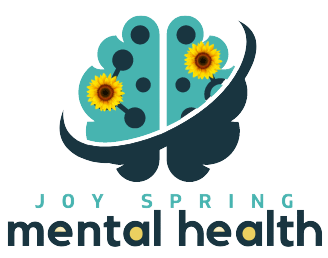Maternal Mental Health

Sound Familiar?
- Irritability
- Anger
- Resentment
- Intrusive, scary thoughts
- Fatigue
- Feelings of being overwhelmed
- Feelings of failure or inadequacy
- Loss of intimacy
- Feelings of isolation
- Difficulty with sleep
- Boredom
- Feeling out-of-control
Help is available.
Depression, anxiety, irritability, mood swings, or general feelings of being overwhelmed, can lead to physical and emotional symptoms. These struggles affect self-confidence, relationships, and overall well-being.
- It doesn't have to be this hard.
- It doesn't have to take so long to get on track to becoming the parent you would like to be.
- You aren't alone.
- It isn't your fault.
- These symptoms are common.
- Effective and safe treatments are available.
- Good moms have these feelings.

What if my symptoms are something more?
I’ve got you covered.
Know your risk:
- Current unmanaged depression or anxiety or other mood disorders (Bipolar, OCD, PTSD, etc)
- Previous depression or anxiety
- Difficulty with hormonal fluctuations (especially before your period)
- Family history of postpartum mood or anxiety symptoms
- Isolation from family or friends (lack of support)
- Situational stressors
- Difficulty asking for help
- Tendencies toward perfectionism
Psychotherapy for Perinatal Mental Health
Psychotherapy is an integral part of maternal mental health care. By integrating multiple modalities (including cognitive behavioral therapy, acceptance and commitment therapy, solution-focused therapy, mindfulness, motivational interviewing, and person-centered care) based on the individual client’s needs, you will be better able to understand and manage your own emotional, relational, and behavioral challenges.
We’ll work together closely to set the priorities, goals, and strategies for treatment.
When needed, trauma-focused modalities will be incorporated with evidence-based Brainspotting.
You are also encouraged and welcome to schedule anticipatory sessions to prepare and strengthen your skills at any time on your parenting journey.
These services are offered through a maternal mental health telehealth platform for clients in NC and VA.
Medications During Pregnancy and Breastfeeding
The most important determinant of maternal and fetal well-being is the mother’s mental health.
While medications are ideally avoided during pregnancy and breastfeeding, this is not always possible or advisable. Utilizing advanced psychopharmacology training, I prescribe patient medications with careful consideration of safety, efficacy, and tolerability for mom and baby. Medication appointments can be done with or separately from psychotherapy and are available to moms who experience postpartum depression, postpartum anxiety, bipolar disorder, OCD, PTSD, insomnia, and other perinatal mental health conditions in North Carolina and Virginia.
The greatest risk for MOM AND BABY is for the mom to suffer from untreated mental illness.



